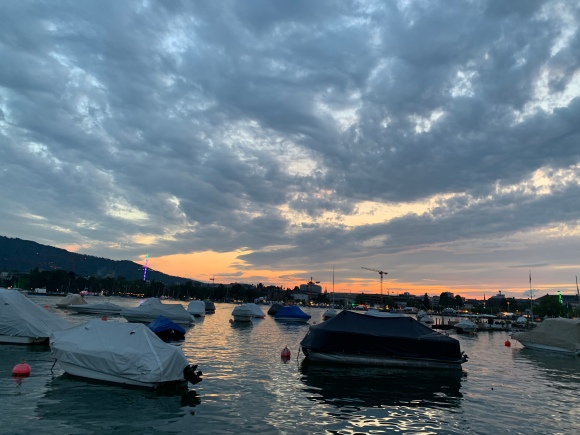“The desire to have a selfie as a souvenir from running with the bulls in Spain turned into a near-death experience an American lawyer says he’ll never forget…
While his daughter and wife cautioned him against joining the crowd that would race the bulls, Alvarez said the energy in the streets of Pamplona on the festival’s opening day was too strong to resist…
His urgent surgery Sunday took 2 ½ hours but Alvarez says his stable condition means he could be discharged as soon as Tuesday. He has promised himself a return to Pamplona to enjoy the festival as a spectator but not a bull racer.” –The New York Times, July 8th 2019
I recently read an article in the New York Times about a man who was gored during the running of the bulls in Pamplona. He is an American, and “when he thought that the danger had passed” he tried to shoot a selfie video of himself standing in the corrida. A stray bull swept along behind him and ripped him through the neck. This incident gave me food for thought. If being pursued by an enraged 1300 pound bull along slick cobbled streets can’t hold your full attention, what can?
I saw a bullfight in Pamplona on the last full day of the San Fermin festival. For those who have not seen a Spanish bullfight, here is a spoiler: the bull dies in the end. The collected works of Ernest Hemingway had left me with the notion that the ferocious bull would be halted mid-charge by a single sword thrust from a stoic, mustachioed man standing tall and alone in the white sand oasis of the enthralled arena. The spectacle would be followed by copious drinking and terse reflections on the nature of Masculinity and Courage.
It is not like that. The copious drinking, for one thing, begins first thing in the morning. The matador does not stand alone in the arena. He enters accompanied by a phalanx of bufones and picadors, who harry the bull for yawning minutes before the matador returns to the ring. The mounted picadors sink barbed lances into the bull’s shoulders as he lunges at their horses, and the bufones taunt the bull before ducking behind barriers that the bull slams in his frenzy and rage. By the time the matador enters the ring the bull has already been destroyed. His ribs heave in and out like a bellows, and you can take his pulse by watching the gouts of blood pumped from his wounds with each throb of his heart. He is exhausted by progressive sprints in the hot sun, chasing ghosts that taunt him and stab him and then whisk away to be replaced by a new tormentor just out of reach. Enter the matador.
The matador goads the bull into charging a scarlet cape, but, because he is not distracted by taking selfies, is able to dodge the killer horns at the last moment. The bull is wheezing and bleeding and foaming pink, but can always summon one more charge at the hateful creature that has poked him. The matador’s sword, in the fight that I watched, was more prop than tool. The bull charged until his legs literally gave out under him, and still tried to shuffle toward the sparkling matador on his knees. “Kill him, asshole!” shouted the guys passing a joint behind me, motivated more by boredom than by mercy. The matador obliged, using a knife smaller than the one I use to dice carrots. He leaned delicately over the wavering horns and stabbed the back of the bull’s neck twice, finally severing the spinal cord on his third attempt. Bands broke out in cheerful music, a team of yoked horses cantered in to drag away the carcass, and a team of men set up a special hose to wash away the blood prior to the next fight.
The San Fermin festival attracts over 1 million people every year, and the bullring seats 20,000. All the celebrants and spectators dress in white, offset by red bandanas and sashes embroidered with regional crests and images of saints. Posters throughout the city feature municipal employees wishing attendees a safe and happy bullfight. The thousands of spectators and the energy of the crowds are indescribable, and the imagery implicates the church, the apostles, and the nation in this epic showdown of man vs. steer. When the matador’s knife cleft the bull’s vertebrae, it dawned on me for the first time that I was complicit in the violence. I wore the red sash, sat in a paid seat, photographed the spectacle: all of this was a tacit endorsement, and made my individual self indistinguishable from the red-and-white mass around me.
It is the prerogative of the spectator to take sides in the contest they observe. The bullfight is pageantry, with the winner already determined. I can see why the average citizen, José the Plumber, would want to see himself in the matador’s shoes. The matador is a winner, with scintillating clothes and a sharp sword and awesome hair, whose sidekicks get out of the way when it’s time for the final blow to be struck. I wonder, though, if anyone else in the crowd did as I did and saw themselves as the bull. You are confused, exhausted, and bleeding from your flanks. You are alone and surrounded by adversaries. The crowd mocks you, the picadors poke you, and the sparkling guy gets all the credit. Would you give up and look to the barriers for the exit that leads back to your farm? If you didn’t find that exit, would you charge until the lights went out?









